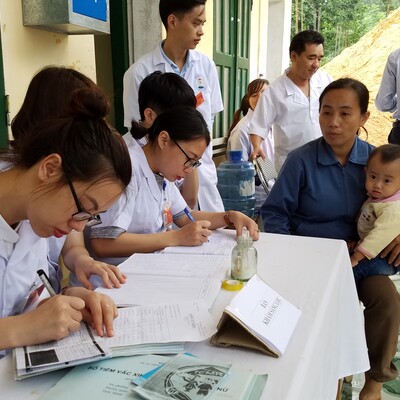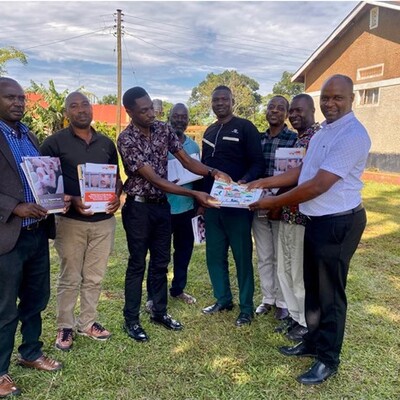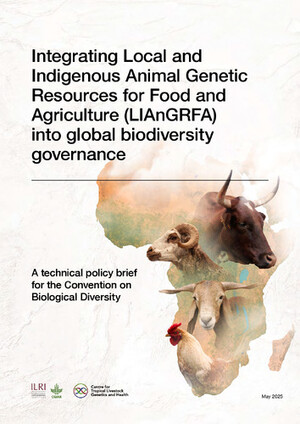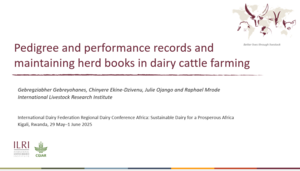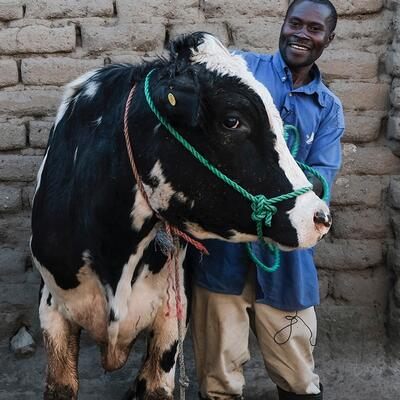

Rekindling and revitalizing chicken farming in Zambia
In Zambia, women play a major role in agriculture and constitute much of the labour force for cash crop production and home consumption. In Chilayabale area of Chongwe district in Zambia, a group of women founded Tuyumepo Women Cooperative with support from Zambia’s Farmer Input Support Program (FISP). Initially focused on commercial soya milk and okra coffee production, members shifted to poultry production in 2022, which they had identified as a game changer. They successfully developed a business plan that was funded by the World Food Programme, providing 150,000 Kwacha (USD 5,600) for broiler chicken production. Part of the funds were used to construct a poultry house and acquire 200 day-old chicks.
However, their excitement soon turned into despair. What had appeared a very profitable venture turned into a loss-making enterprise. The group could not understand why the birds, despite being provided with the required feed and vaccines, had a high mortality rate. They eventually abandoned the broiler production business.
Despite setbacks, the group’s determination remained strong. Like many other smallholder poultry producers in Zambia; they recognized the immense potential of chicken farming. But they were constrained by various production challenges such as limited access to improved chicken breeds or day-old chicks, limited access to key vaccines, basic chicken health services, quality feed, and essential extension services. These challenges led to poor productivity, high mortalities and underperformance of the enterprise and the chicken value chain in general.
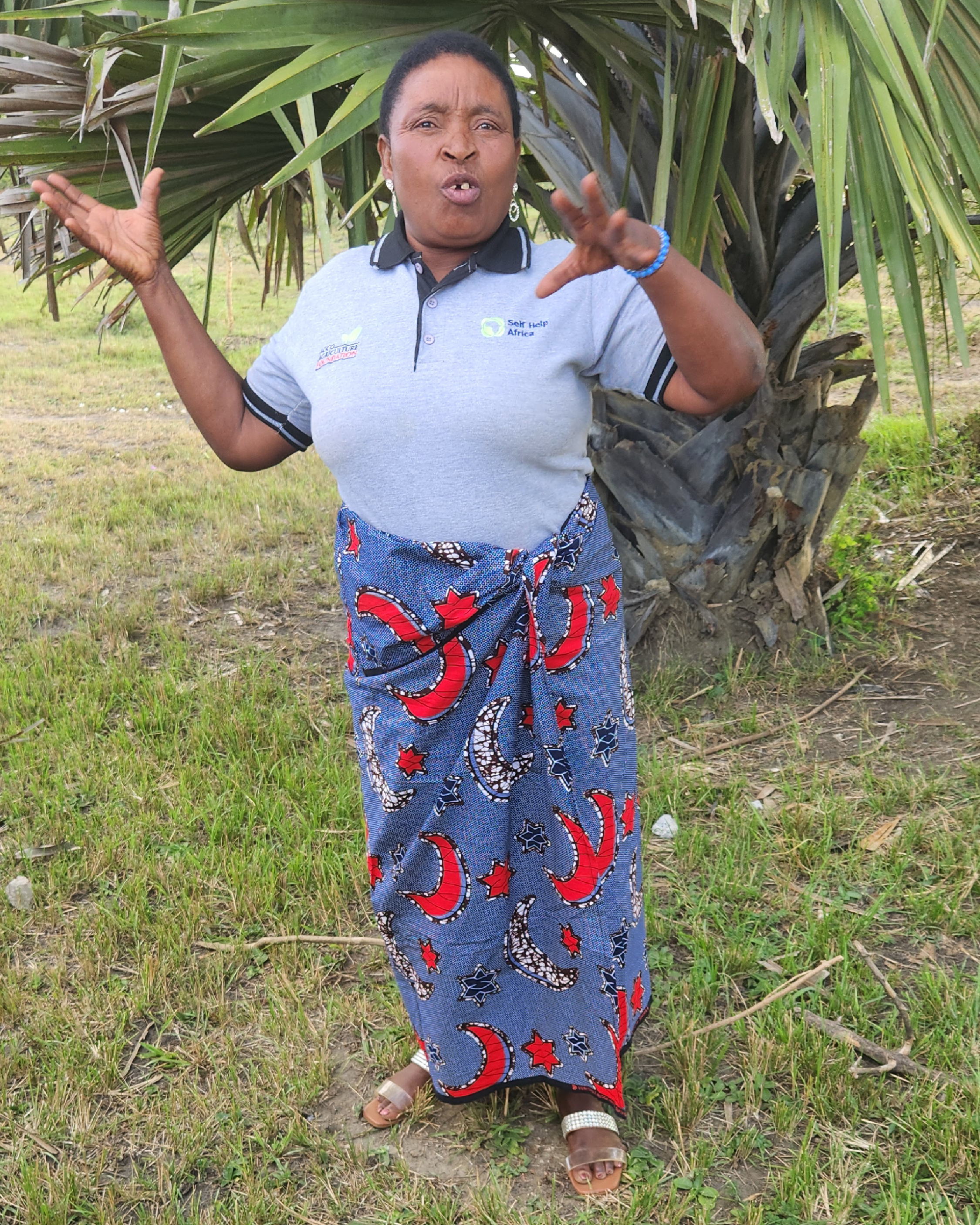
However, a ray of hope emerged earlier this year with the arrival of the Southern Africa Accelerated Innovation Delivery Initiative - Livestock (AIDI-L) in Bimbe. A sensitization meeting organized by AIDI-L reignited their enthusiasm for poultry farming. What stood out was AIDI-L's commitment not only to provide starter kits but also to offer training on best poultry farming practices. This renewed optimism prompted members of the Tuyumepo Women Cooperative, along with other farmers in the area, to attend training sessions on poultry production at Kambekete Camp, Chongwe District, Lusaka Province on 8 April 2024.
The participants were trained on general poultry production and marketing, and how to effectively train others on the same in the targeted districts. The target trainees were commercial poultry farmers, brooders, and lead farmers. Each training was attended by about 30 participants comprising lead farmers, brooders, and commercial poultry farmers in the district.
Led by Venture37, the International Livestock Research Institute (ILRI), and local government livestock officers, these sessions covered various aspects of poultry farming, from chicken health and housing to marketing and business development.
To many, the training was an eye-opener.
‘I have just realized that our broilers were dying not because of diseases, but because of poorly ventilated housing structure,’ stated Annie, a brooder and a lead farmer in the area.
With the newfound partnership, the cooperative plans to acquire 200 chicks.
Elizabeth Mwalusoke, a farmer from Lobolola Village, Chongwe District, had long recognized the potential of poultry farming but lacked the necessary knowledge and skills on good poultry husbandry, such as appropriate housing, hygiene, pests and diseases, and their control. She was lucky to have attended the AIDI-L sensitization meeting at Bimbe and Kambekete Camp in February 2024.
‘This project will definitely help us develop our chicken business’.
The venture is even more appealing to Elizabeth, who owns two hectares of farmland, ideal for chicken rearing but not for large livestock farming.
For the ambitious Festus Nchenesi, the initiative provides opportunities for expanding and diversifying his commercial chicken enterprise. Nchenesi, a retired accountant, started with 100 broilers in 2017 at his one-hectare farm after relocating from Chongwe Town. He has steadily increased the flock to 300 birds but would have kept more if it had not been for the challenges he has encountered.
His attempts to venture into improved chicken farming failed due to a lack of knowledge of chicken brooding.
‘I would have over 10 chicken brooding with at least 10 eggs each. But once one of the chickens had chicks, all the others would abandon their eggs and start fighting to care for the few hatched chicks. To circumvent this, I acquired a 32-egg capacity incubator, hoping not only to build my flock but also to brood and supply to other farmers in the area. However, the 6,000 Kwacha incubator could only hatch 3-5 eggs per incubation for reasons the supplier could not even explain. I am very optimistic that the project will turn my fortunes around. My target is to have at least 1,000 improved chickens because of their good marketability and returns and reduce the broiler flock.’
Others like retired Captain Ceasar Chibiye, a commercial poultry farmer in Kapiri District, Central Province, are more than ready to seize the market linkage opportunities that the project is bringing, being one of the major hurdles the farmers have been grappling with in the chicken value chain.
Laurence Ochieng, an ILRI veterinarian, was impressed with the enthusiasm and passion of the participants. He was optimistic that the project will greatly revitalise chicken farming in target regions.
‘Most of the attendees seem to be involved in village chicken rearing. For instance, those from Shamutinta village will benefit from disease control measures such as Newcastle disease vaccination as this seems to be their greatest challenge in rearing the birds to productive stage. Most of them had lost their flocks due to diseases, predominantly Newcastle and fowl pox.’
Esther Omosa, ILRI nutrition specialist, sensitized the participants on the importance human nutrition, promising to conduct a detailed TOT training on high impact nutrition sensitive interventions that need to be implemented at community level to prevent malnutrition.
Funded by the United States Agency for International Development, the two year AIDI-L project aims to help 15,000 small-scale, poultry-keeping households acquire increased access dual-purpose backyard village chicks; and reduce morbidity and mortality of poultry by facilitating access to, and vaccination of, poultry to key economically impactful diseases such as Newcastle Disease. With a holistic approach that addresses both production and market challenges, the project holds promise for revitalizing chicken farming in Zambia. Thousands more households will be reached through media advisories on the importance of vaccinations and improved husbandry practices for chickens.
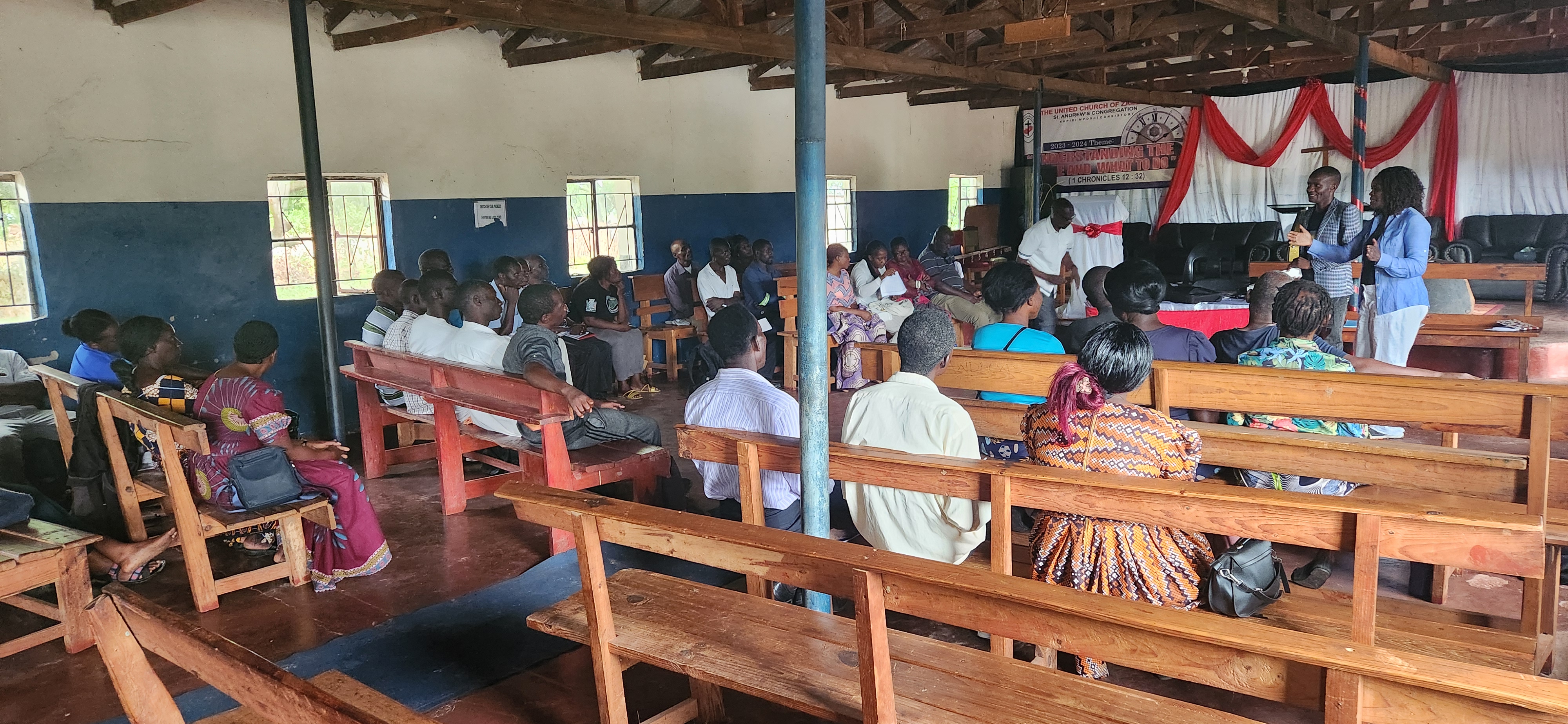
You may also like
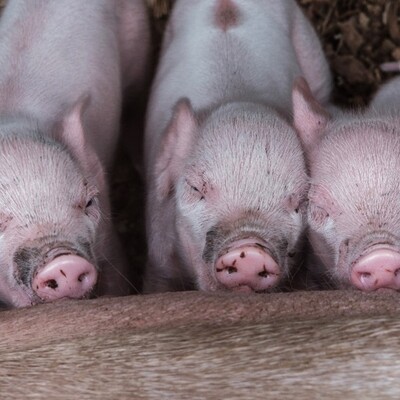
ILRI News
Livestock stakeholders commit to create a sustainable and inclusive pig value chain in Uganda by 2035

ILRI News
Goats with aprons? A traditional anti-mating innovation used by Maasai communities in Tanzania
Related Publications
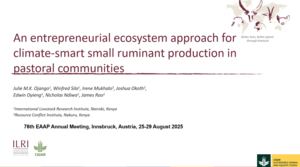
An entrepreneurial ecosystem approach for climate-smart small ruminant production in pastoral communities
- Ojango, Julie M.K.
- Sila, Winfred
- Mukhalo, I.
- Okoth, J.
- Oyieng, Edwin
- Ndiwa, Nicholas N.
- Rao, E.J.O.

Evaluating methods to explore antibiotic use on smallholding pig farms in peri-urban Kenya
- Scott, C.
- Bor, Nicholas
- Reyher, K.K.
- Tasker, A.J.
- Buller, H.
- Korir, Max
- Muloi, Dishon M.
- Bueno, I.
- Thomas, Lian F.

Harnessing community conversations for gender-responsive engagement in livestock management in Ethiopia: a methodological reflection
- Lemma, Mamusha
- Alemu, Biruk
- Knight-Jones, Theodore J.D.

Farm-level livestock loss and risk factors in Ethiopian livestock production systems
- Yin Li
- Jemberu, Wudu T.
- Mayberry, D.





